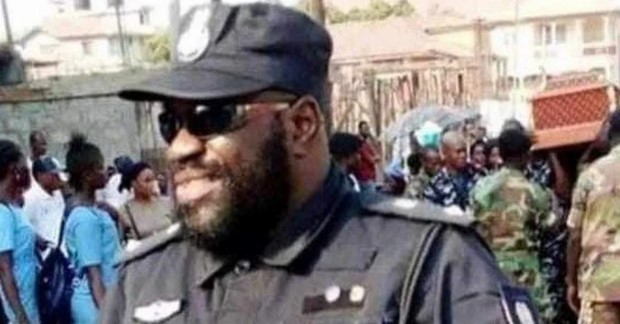The Office of International Religious Freedom, United States Department of State, has released its 2022 Report on International Religious Freedom, with Liberia making progress in the overall status of government respect for religious freedom.
The annual report to Congress on International Religious Freedom—the International Religious Freedom Report—describes the status of religious freedom in every country. The report covers government policies violating religious belief and practices of groups, religious denominations and individuals, and U.S. policies to promote religious freedom around the world. The report was published on May 15, 2023.
Demographically, the US State Department Report put Liberia’s population at 5.4 million, with 85.6% Christians, 12.2% Muslims, 1.5% persons who claim no religion, 0.6% adherents of indigenous religious beliefs, and less than 1% members of other religious groups, including the Ahmadiyya Muslim Community, Baha’i Faith, Buddhists, Hindus, Jews and Sikhs. However, Muslim organizations continue to dispute these official statistics, stating that Muslims constitute up to 20% of the population.
Christians reside throughout the country. Muslims belonging to the Mandingo and Fula ethnic groups reside throughout the country, while Muslims of the Vai ethnic group live predominantly in Grand Cape Mount County in the west. The traditional Poro (for males) and Sande (for females) societies–often referred to as “bush” or secret societies–combine traditional religious and cultural practices and are present in the northern, western, and central regions of the country. Other traditional cultural and religious societies, including the Kui Society and the Bodio, or priests of the Glebo people, exist in the southeast.
According to the report, Muslim organizations noted improvements in government attitudes and policies affecting them. According to the National Imam Council of Liberia (NICOL), these improvements helped ease tensions within the Muslim community. On April 12, 2022, the administration of the MCSS issued a statement on the observance of the holy month of Ramadan that ordered all the system-operated schools closed on May 2, 2022 in observance of Eid al-Fitr. The statement further granted permission to all MCSS female Muslim students to wear the hijab during the month of Ramadan, which is normally not allowed as part of the school uniform during the rest of the academic year. Muslim organizations welcomed the MCSS gesture and noted it was a big step toward religious tolerance. NICOL called on the Monrovia City Corporation (MCC) to follow the example of the MCSS by granting a municipal holiday to Muslims in Monrovia to commemorate Eid al-Fitr in 2023 or it would boycott any future events hosted by the MCC to mark the end of Ramadan. NICOL also urged Ministry of Education authorities to take steps similar to those taken by the MCSS to enable Muslim students across the country to freely join students in Monrovia to celebrate Eid al-Fitr.
However, Religious leaders continued to recommend that the government engage religious communities in proactive dialogue on social and other issues, such as COVID-19 awareness and vaccinations, political violence and disputes, and economic development, rather than calling upon religious organizations as mediators only after problems developed. Religious leaders continued to express willingness to mediate in conflict situations as an extension of their proactive dialogue on social issues.
On June 3, during an induction ceremony at Providence Baptist Church for newly elected officials of the Liberia Council of Churches (LCC), newly elected President, Reverend Samuel Broomfield Reeves, Jr. vowed to stand strong against what the LCC termed “get rich quick” activities through the misuse of government positions and power. He added that the LCC “will take no money from the government for national church related programs, such as Fast and Pray Days, among other activities,” and that “the church will support the church”.
Also, human rights organizations continued to call upon the government to intervene in and investigate cases of persons accused of witchcraft being injured or killed as the result of exorcisms and trials by ordeal. On July 15, news radio reported that unknown persons tortured four persons in Sinoe County, in the southeast of the country, and that one later died, as a result of accusations of practicing witchcraft.
Several religious organizations, including Christian and Muslim groups and the Baha’i Spiritual Assembly, continued to voice alarm over the forced initiation of their members by leaders of traditional Poro (male) and Sande (female) secret societies. In October, NICOL noted the forced initiation of one of its members, 60-year-old Geebah Dorley from Zuaah Town, Seuhn Mecca District, in Bomi County. NICOL claimed traditional society members seized Dorley as he went to gather sticks to make charcoal.
https://www.state.gov/reports/2022-report-on-international-religious-freedom/liberia/






